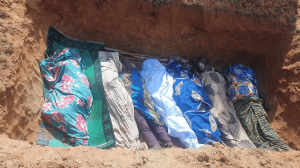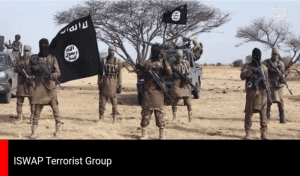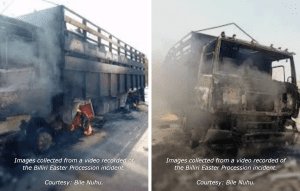On the night of February 23, while most of the world slept soundly under blankets of peace, the small Nigerian village of Boto was plunged into horror. Boto, a humble farming community of 150 compounds in Southern Kaduna, is known for fertile fields and industrious people — not for the violence that would soon descend on them.
That night, Fulani ethnic militias swept into the village under the cover of darkness. Gunfire erupted from every direction. “Fulani! Fulani! Run, run!” villagers screamed as they scattered blindly into the night.
Among them was 32-year-old Monica Adamu, a mother of three, who recounted how she was captured when a bright flashlight froze her in her tracks. Along with three other boys, Monica was dragged into captivity — four hostages snatched from their homes without a shot fired or a house burned, the trauma inflicted without a single visible scar on the village itself.
But the scars on the souls of those taken were just beginning.
The abductees, ages 16 to 32, were forced to march barefoot for two days over thorns, rocks, and through dense bush, arriving at a terrorist camp hidden near Kachia County. There, they were chained to trees, blindfolded, whipped with horsewhips, and fed barely enough to survive.
This was no random act of banditry. According to reports, the camp was one of several, each holding 80 to 120 captives. The Fulani militias, in their hundreds, operated like a parallel government — negotiating ransoms, moving supplies, and terrorizing with impunity.
Back in Boto, the villagers scrambled to save their own. Negotiations opened at a staggering demand of 30 million naira ($20,000) and three new Android phones. By desperate sacrifice, they scraped together half — 10 million naira ($7,000) — and handed it over to an armed contact under strict instructions. Still, it was not enough. More money was demanded under threats of execution. Another 1.2 million naira was scraped together.
The villagers were at their limit. And the captives? They were at death’s door.
“We were beaten almost to death,” said one of the captives, Salisu Thomas, as the terrorists grew restless and began releasing those whose ransoms were mostly paid. Strangely, despite killings reported in neighboring camps, no one in their group was executed.
Then came the storm.
On a rain-lashed night in mid-April, as lightning cracked the sky, Thomas realized his chains had loosened. In a daring escape, he freed his fellow villagers and a few others. Crawling through the mud, slipping past distracted guards, they ran blindly through the night, hiding by day, surviving on wild fruits, and praying Psalm 23 over themselves: “The Lord is my Shepherd, I shall not want.”
For three days they trekked, dodging Fulani herders who had taken over abandoned lands, occupying villages emptied of their Christian owners. On the third night, they spotted a Christian settlement. Cautiously, they approached and were met by local volunteer guards — not government forces, not police, not military, but everyday villagers who made sure they were hidden and protected.
For the first time in seven weeks, they slept under a roof, welcomed by a local pastor.
Now, you might ask: Why have you not heard this story?
Why are the names of these survivors not splashed across your evening news? Why are Nigerian Christians being abducted, tortured, and forced to ransom their own lives — yet the Western Church and the Western media stay silent?
This is not a one-off event. This is not a tragic fluke. This is the grinding, unending reality of Christian persecution in Nigeria, especially in the Middle Belt, where Fulani militias have driven countless families off their ancestral lands. This is ethnic cleansing with a religious edge. And yet, the world barely notices.
We should ask ourselves — why?
Why are we flooded with stories of every Western political squabble, every celebrity scandal, every passing humanitarian trend, but we hear nothing of villages like Boto? Why is there no outrage, no widespread prayer, no surge of aid?
Are we, as the Western Church, simply too busy, too distracted, or too indifferent? Have we bought into the lie that the suffering of our brothers and sisters across the world is somehow “far away” — not truly our concern?
We should not look away.
The escape of Monica, Thomas, and the others is a miracle — but it is also a summons. It is a call to remember those still in chains, still in camps, still under the whip of lawless militias. Their prayers reached heaven, but they should also reach our ears.
If the global Church cannot carry the weight of these stories, who will?
Who will pray, give, advocate, and raise the alarm?
Psalm 23 was on their lips as they fled. May it be on ours as we act.







